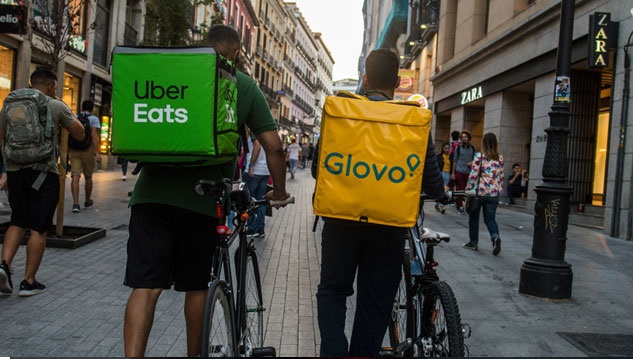
The US Labor Secretary Marty Walsh said Wednesday that gig workers in the United States should be considered employees, a status that will offer them protection and other work benefits.
The gig work model has been a subject of controversy that spans across the US, Europe and recently Africa. Walsh’s statement signals a potential shift in the status quo that may deliver a win for the United States’ organized labor movement.
“We are looking at it but in a lot of cases gig workers should be classified as employees… in some cases they are treated respectfully and in some cases they are not and I think it has to be consistent across the board,” Walsh told Reuters in an interview.
Register for Tekedia Mini-MBA edition 19 (Feb 9 – May 2, 2026): big discounts for early bird.
Tekedia AI in Business Masterclass opens registrations.
Join Tekedia Capital Syndicate and co-invest in great global startups.
Register for Tekedia AI Lab: From Technical Design to Deployment (next edition begins Jan 24 2026).
“These companies are making profits and revenue and I’m not (going to) begrudge anyone for that because that’s what we are about in America. But we also want to make sure that success trickles down to the worker,” he said.
The ride-hailing business was built on the gig economy, a business model which allows workers flexibility but denies them work benefits such as health plans and paid leave. However, the gig business model has been as controversial as it has been successful.
Uber, the founding ridesharing company and its contemporaries, has been in and out of courts with drivers, labor unions and governments in the US and Europe over the classification of their workers as independent contractors, but for the first time, the US federal government is taking more than usual interest in the matter.
The International Labor Organization said as many as 55 million people in the United States were gig workers – or 34% of the workforce – in 2017, and the total was projected to rise to 43% in 2020, which shows a boom in the business model.

Biden’s administration is poised to make changes in the US labor laws, introducing new rules and shifting existing ones on many fronts. With that, Walsh’s work at the Department of Labor is expected to have a major impact on U.S. workplace laws and regulations, including vigorous enforcement of occupational safety and health rules, overtime payments and proper administration of employee benefit plans.
Reuters reported that Walsh’s views on the issue could usher in new rulings from the department, which sets legal guidelines for how employers treat workers.
On Tuesday, Biden signed an executive order that requires federal contractors to pay a $15-an-hour minimum wage, a much needed raise from the $10.95 per hour and the $7.65 per hour tipped minimum wage. The decision signals the administration’s determination to improve workers welfare including those in the private sector.
The Labor Department’s Wage and Hour Division had set the ball rolling before Walsh’s appointment, with a proposal to rescind a rule adopted in January that would have made it easier to classify workers as independent contractors.
Reuter quoted Walsh as saying that the Department will have conversations with companies that employ gig labor in the coming months to make sure workers have access to consistent wages, sick time, health care and “all of the things that an average employee in America can access.”
The move is similar to many others made in the past by state governments. Last year, the state of California introduced the AB-5 law which declassified Uber and Lyft drivers as independent contractors. But the prop. 22, which gave people the opportunity to choose what they want through the ballot, saved the gig economy in California, as people voted to keep the controversial business model.
Uber, Lyft, and food delivery companies such Doordash, Postmates and Grubhub, have maintained that the workers prefer the flexibility which their self-employed status accords them, because “it allows them to work when, where and how they want” in clear contrast with traditional jobs.
A Doordash spokeswoman said “dashers have overwhelmingly told us that they value the flexibility to earn when and how they choose. We’re committed to protecting their independence while providing greater security and benefits.”
An Uber spokesman said the United States should be advancing policies to improve independent work and not eliminating it, because the overwhelming majority of app-based workers want to stay independent.
But against this backdrop lies a concern that was duly exposed as the pandemic hit home. Gig workers were left with no insurance or employment benefits that traditional workers derived from their work status. Walsh said such situations heap a burden on the federal government.
“If the federal government didn’t cover the gig economy workers, those workers would not only have lost their job, but they wouldn’t have had any unemployment benefits to keep their family moving forward. We’d have a lot more difficult situations all across the country,” he said.
It is not clear if Biden’s administration is all for it, but Walsh’s statement means that the threat before the gig economy is far from over.
In February, the Supreme Court in London ruled in favor of Uber drivers seeking recognition as employees. In March, the Spanish government announced legislation that classifies food delivery riders as employees of the digital platforms they work for. With these examples and the unending talks about gig workers’ welfare in the US, the gig economy is likely going to be axed soon.



